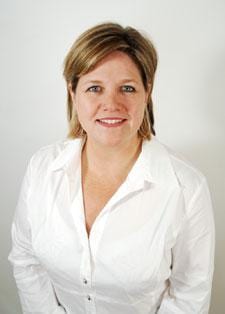Hamilton MPP Andrea Horwath has been elected as the new leader of the Ontario New Democratic Party.
It was the first Ontario NDP leadership convention since Howard Hampton replaced one-time NDP premier Bob Rae in 1996.
Xtra’s associate editor Julia Garro spoke with the four leadership contenders last month. Here is an excerpt from that piece:
ANDREA HORWATH
Quick hit: Born in Stoney Creek, Horwath was elected as Hamilton Centre MPP in a byelection in 2004. She is the party critic for Municipal Affairs, Government and Consumer Services, Children and Youth, Occupational Health and Safety, Women’s Issues and Economic Development and Trade as well as Deputy Deputy Speaker. Before her jump to provincial politics she served as a Hamilton city councillor from 1997 to 2004. Prior to that she worked as a grassroots organizer, winning the honour of Hamilton’s Woman of the Year in Public Affairs in 1996.
Word from a queer in her corner: “For me Andrea is the new face of the NDP,” says longtime queer activist and Horwath supporter Deb Parent. “In my opinion she’s the face that speaks to disenfranchised communities, that speaks to women, GLBT people, people of colour, seniors, disabled people, poor people. And if we do not put a strong new fresh face to the party, we will not be able to bring people back.
“I believe that Andrea has the energy has the experience to bring communities to the table and to get things done. I think she’s got a record of accomplishment that reflect that. For me Andrea is a candidate with tremendous broad-based experience and as an activist I value her commitment and her understanding of how important it is to build the party from the ground up.”
Horwath on winning queers back to the party after the betrayal of Bill 167:
“I wasn’t there when that bill was debated, I wasn’t there when it went down. I bring something different to the party. I don’t have that baggage if you will. I believe my personal experience and history supporting the LGBT community in Hamilton and elsewhere will speak for itself.”
On what issues are of concern to queer voters in Ontario:
“I would say their issues are those that everybody else has as well, issues of jobs, of the economy, the environment, of rights and making sure that we move forward in a progressive way on LGBT issues.
“I would never presume to speak on behalf with the LGBT community without having that discussion. It’s not about me having the answers… I used to be a grassroots organizer in Hamilton doing social justice work so I’ve never been of the perspective that leadership is about coming up with ideas on your own. It’s about talking to people and finding out their issues.”
On provincially funding sexual reassignment surgery:
“Absolutely, not only in terms of making sure it’s covered by OHIP — everything from day one is covered, everything through the process including things like counseling… but it’s also about access, geographic access. I know the community in Hamilton has issues about not having access. I’m in Sudbury right now and I can tell you I’m sure there’s not a lot of access here. There’s real action that needs to be taken to ensure people have support all the way through — financial support but also that they have access to that support.”
On extending Ontario’s Human Rights Code to explicitly protect trans people:
“I’m absolutely supportive. It’s long past time that we have legislated changes in Ontario and in Canada.”
On addressing discrimination and violence directed against queer people in Ontario:
“There continues to be a necessity for speaking out and bringing these issues to the public light…. It’s not just in more rural or remote communities. We’ve had some horrendous issues in Hamilton actually… and I’ve been there as an elected official decrying the violence and making sure that the issue isn’t hidden and swept under the carpet. It’s important that community leaders take action. If we’re not ready to speak out against it that speaks volumes.
“I think it’s everyone’s responsibility that the voice is brought to the table that violence isn’t something that can be perpetrated without public outcry. Not just traditional ‘education’ but full community acknowledgment and voice when these things occur. Of course there needs to be proper follow up from police and law enforcement… making sure that there is awareness and commitment to dealing with these kinds of crimes that is suiting in terms of proper charges and follow up. Without that these things continue to occur without repercussions and people continue to be at risk which is completely unacceptable.”
On addressing homophobic and transphobic bullying in Ontario’s schools:
“It continues to be problematic and it’s often reflective of what’s happening in the broader community…. There is opportunity to be more proactive in the school system particularly at the high school level and even at the grade school level. We need to be prepared to have the dialogue with young people at an early age or we’ll continue to see them sucked into stereotypical behaviour that is transphobic and homophobic. I’m not a curriculum developer so I don’t know what the appropriate age would be, when you’d start to introduce it into the community, but it has to be done. We have so far to go still. We can’t have generation after generation going through the system not being educated… about where people are coming from and what people’s orientation is and the basic human rights around that. It’s amazing that in such a progressive country and province that we’re not being proactive to ensure that’s being respected across our society.”

 Why you can trust Xtra
Why you can trust Xtra


